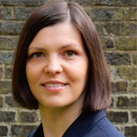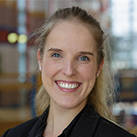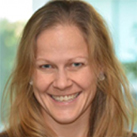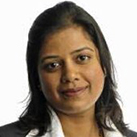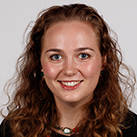10th Risk Summit (2019)

20 Jun 2019
09:00 -22:00
21 Jun 2019
10:30 -14:00
Times are shown in local time.
Open to: Specialists and business managers, including threat specialists, academics, policy-makers, practitioners and advisors

Cambridge Judge Business School
Trumpington St
Cambridge
CB2 1AG
United Kingdom
Science in scenarios
To mark the 10th anniversary of the Cambridge Centre for Risk Studies, our annual risk summit considers how risk will change over the next decade, exploring the potential for emerging risks and the changing nature of strategic risk for businesses.
We will explore the changing future landscape across the 6 classes of risk defined in the Cambridge Business Risk Taxonomy. The taxonomy of business risks was one of the earliest risk outputs of the Centre for Risk Studies, and each year for the past 5 years, we have published the Cambridge Global Risk Index under these risk classes:
- Financial & Economic Risks
- Geopolitical & Security Risks
- Technology Risks
- Environmental & Natural Hazard Risks
- Societal & Sustainability Risks
- Governance & Regulatory Risks
Business executives need to plan for multi-year investments, returns on capital, and longer-term assessments of risks to their business strategies.
At our 10th Annual Risk Summit, we challenge business risk managers to consider how the risk could be very different over a 10-year horizon, particularly the potential paradigm shifts that could provide strategic shock, and how enterprise risk management strategies can be developed to cope with the uncertain future.
We invite presentations and attendance from a wide variety of specialists and business managers, including threat specialists, academics, practitioners and advisors.
The conference will be held at Cambridge Judge Business School. On 20 June the conference will be followed by a black-tie gala dinner at Christ’s College, University of Cambridge. The dinner speaker will be Lord Richard Wilson of Dinton, Former Master of Emmanuel College, University of Cambridge, who has served under UK Prime Ministers and for 10 years served as Chairman of the UK’s oldest private bank.
Registration closed
Registration for this event is closed. If you are interested to hear about upcoming events and other Centre-related news and resources, please join our mailing list.
Principal knowledge partners
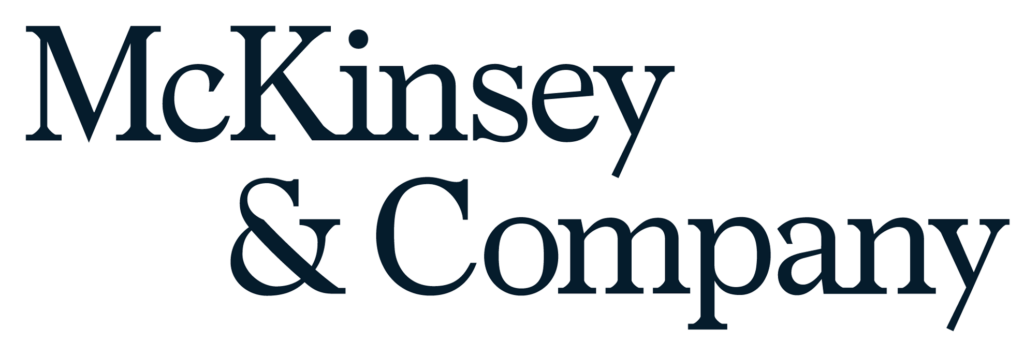

Meeting partners
Programme
Day 1
20 June 2019
09:00 – 09:30
Registration and coffee
09:30 – 09:40
Welcome
Professor Daniel Ralph, Academic Director, Cambridge Centre for Risk Studies, and Professor of Operations Research, Cambridge Judge Business School
09:40 – 10:00
Researching Business Risk – the Past 10 Years, the Next 10 Years
Dr Andrew Coburn, Chief Scientist, Cambridge Centre for Risk Studies
10:00 – 10:30
Making a Market for Acts of Terrorism: A Model for Addressing the Difficult to Insure Risks of the Future
Julian Enoizi, CEO, Pool Re
10:30 – 11:00
What Does a Business Need to Know about the Likely Impacts of Climate Change?
Dr Robert Muir-Wood, Chief Risk Officer, Risk Management Solutions, Inc.
11:00 – 11:30
Coffee break
11:30 – 13:00
Parallel Sessions I
Chair: Dr Michelle Tuveson, Executive Director, Cambridge Centre for Risk Studies
Discussant: Dr Andrew Pitt, Head of Global Research, Citi
- Financial and Economic Risks – CRS Risk Outlook – Ken Deng, Financial and Economic Risk Research Lead, Cambridge Centre for Risk Studies
- Financial Crises of the Future: The Lessons of History – Dr Duncan Needham, Director of Cambridge Centre for Financial History
- Challenges in Managing Financial Risk in the Future: A Practitioner’s View – Alessandra Mongiardino, outgoing Head of Enterprise-wide Risk Management, Nordea Bank Abp
Chair: Professor Daniel Ralph, Academic Director, Cambridge Centre for Risk Studies
Discussant: Marianne Schneider-Petsinger, Geoeconomics Fellow, Chatham House
- Geopolitical and Security Risks – CRS Risk Outlook – Tamara Evan, Geopolitical Risk Research Lead, Cambridge Centre for Risk Studies
- Conflicts of the Future – Jim Maltby, Principal Scientist, Defence, Science & Technology Laboratory
- Managing Future Risk in International Supply Chains – Nick Wildgoose, Independent Supply Chain Risk Consultant, Supplien Consulting
Chair: Simon Ruffle, Director of Research & Innovation, Cambridge Centre for Risk Studies
Discussant: John Low, Head of Risk, Game
- Technology Risks – CRS Risk Outlook – Kelly Quantrill, Cyber Risk Researcher, Cambridge Centre for Risk Studies
- Managing the Risks of Digital Identity in Business – Olivia White, Partner, McKinsey and Company
- The Future of Cyber Risk – Dr Christos Mitas, Vice President and Head of Cyber Risk, Risk Management Solutions
13:00 – 14:00
Lunch at the Cambridge Judge Business School
14:00 – 15:30
Parallel Sessions II
Chair: Simon Ruffle, Director of Research & Innovation, Cambridge Centre for Risk Studies
Discussant: Jonathon Gascoigne, Director of Risk Analytics, Capital, Science and Policy Practice, Willis Towers Watson
- Environmental and Natural Hazard Risks – CRS Risk Outlook – Oliver Carpenter, Natural Hazards Risk Research Lead, Cambridge Centre for Risk Studies
- Managing Risk in a Changing Environment – Dr Emily Shuckburgh, Deputy Head, Polar Oceans Team, British Antarctic Survey
- Preparing for Climate-Related Financial Disclosures in Businesses – Manjula Chummun, Tesco, and member of the Task Force on Climate-Related Financial Disclosure
Chair: Professor Daniel Ralph, Academic Director, Cambridge Centre for Risk Studies
Discussant: Brendan Plessis, Executive Vice President, Head of Emerging Markets, AXA XL
- Societal and Sustainability Risks – CRS Risk Outlook – Kayla Strong, Human and Humanity Risk Research Lead, Cambridge Centre for Risk Studies
Key Sustainability Issues in the Next Decade
Professor Aled Jones, Director of the Global Sustainability Institute, Anglia Ruskin University - Risk to Business and the Economy from Future Pandemics – Professor John Edmunds, London School of Hygiene and Tropical Medicine
Chair: Dr Michelle Tuveson, Executive Director, Cambridge Centre for Risk Studies
Discussant: Simon Learmount, Lecturer in Corporate Governance, Cambridge Judge Business School
- Governance and Regulatory Risks – CRS Risk Outlook – Jennifer Copic, Regulatory and Liability Risk Research Lead, Cambridge Centre for Risk Studies
- Managing Reputational Risks: The Future Landscape – Clare Williams, Director of Reputation Management, Barclays
- Working Towards a More Resilient Economy and Society – Rainer Sachs, Independent Consultant, International Risk Governance Council
15:30 – 16:00
Coffee break
16:00 – 17:15
Plenary Panel: Risk Panorama – Creating Corporate Resilience for the Next Decade
Moderated by: Professor Daniel Ralph, Academic Director, Cambridge Centre for Risk Studies
- Financial and Economic Risks – Dr Andrew Pitt, Head of Global Research, Citi
- Geopolitical and Security Risks – Marianne Schneider-Petsinger, Geopolitics Fellow, Chatham House
- Technology Risks – John Low, Head of Risk, Game
- Environmental and Natural Hazard Risks – tbc
- Societal and Sustainability Risks – tbc
- Governance and Regulatory Risks – Simon Learmount, Lecturer in Corporate Governance, Cambridge Judge Business School
17:15 – 17:30
Concluding Remarks
Dr Michelle Tuveson, Executive Director, Cambridge Centre for Risk Studies
18:00 – 19:15
Networking reception, Christ’s College, University of Cambridge
19:00 – 22:00
Black Tie Gala Dinner, Christ’s College, University of Cambridge
Dinner Speaker: Lord Richard Wilson of Dinton GCB, Former Cabinet Secretary; Former Master, Emmanuel College, University of Cambridge
Day 2
21 June 2019
10:30 – 11:00
Registration and coffee
11:00 – 11:10
Welcome and introduction
Professor Daniel Ralph, Academic Director, Cambridge Centre for Risk Studies and Professor of Operations Research, Cambridge Judge Business School
11:10 – 11:30
Keynote Address
Andrew Hill, Management Editor, Financial Times
11:30 – 12:40
Business Leaders Plenary Session
Panel: Changing Times – How Corporates Manage Opportunities and Risks
Moderated by: Andrew Hill, Management Editor, Financial Times
- Dame Inga Beale, Board Director, London First and Chartered Insurance Institute
- Michael Kitson, Senior Lecturer, Cambridge Judge Business School and Assistant Director of Centre for Business Research
- Alan Smith, Global Head of Risk Strategy and Chief of Staff, Global Risk, HSBC
- Dr Michelle Tuveson, Executive Director, Cambridge Centre for Risk Studies
12:40 – 12:50
Cambridge-McKinsey Risk Prize
12:50 – 13:00
Conclusion
13:00 – 14:00
Networking lunch at Cambridge Judge Business School
Speakers and resources
- Keynotes
- Financial and Economic Risks
- Geopolitical and Security Risks
- Technology Risks
- Environmental and Natural Hazard Risks
- Societal and Sustainability Risks
- Governance and Regulatory Risks
Keynote sessions
Abstract
Ten years ago, the Centre for Risk Studies was established at the Judge Business School at the University of Cambridge with a mandate to carry out research into risk in business.
The past ten years of business risk research has been a journey of discovery and community-building. Research at CCRS has spanned trying understand the complexity of business interconnectivity, and the potential for widescale collapse of highly-connected systems, through to detailed explorations of highly technical dimensions of emerging risks. The Centre has produced well-regarded research outputs that have influenced several areas of business risk management.
One of the key research philosophies of the Centre has been the need to compare disparate risks using standardised metrics. A key research output has been our taxonomy of risks, that has structured much of our research agenda and approach. This is incorporated in our Cambridge Global Risk Index, published each year for the past five years.
We advocate taking a multi-threat approach to risk management, and this has been a distinguishing feature of our work. Today’s conference is in fact structured to represent the six main classes of risk that feature in our taxonomy of risk: Financial & Economic Risks; Geopolitical & Security Risks; Technology Risks; Environmental & Natural Hazard Risks; Societal & Sustainability Risks and Governance & Regulatory Risks.
The types of risks and the issues that businesses are faced with have changed very significantly over the past decade, and for our tenth anniversary, we decided that our Risk Summit should acknowledge how risk issues have evolved and challenge our presenters at this year’s conference to provide pointers to the risk landscape for the next ten years. We hope and expect that the Cambridge Centre for Risk Studies will be contributing to the risk management decision-making of organizations in the next decade as much as the last.
Andrew Coburn
Chief Scientist, Cambridge Centre for Risk Studies
Dr Andrew Coburn is Chief Scientist of the Centre for Risk Studies, coordinating the inputs of consumers of research into the Centre’s risk agenda. Andrew is the principal coordinator of the research programme on ‘System Shock’ at the Centre.
Andrew is one of the leading contributors to the creation of the class of catastrophe models that over the past 20 years has come to be an accepted part both of business management in financial services and of public policy making for societal risk. He has extensive experience in developing models and using them for business decision support. Andrew has also provided research inputs into government policy, such as House of Congress legislation on terrorism risk management policy and urban planning for disaster mitigation in Mexico, Metro Manila, and Southern Italy.
Abstract
Businesses, governments and the (re)insurance industry are all faced with a growing mismatch between capital, coverage, and vulnerability to an increasingly complex risk universe. With 26 years of experience in building the resilience of UK businesses to terrorism risk, how can the success of Pool Re’s public/private model be replicated to grow the commercial viability of risks which are difficult to insure, and in so doing, marry market and social objectives?
Julian Enoizi
CEO, Pool Re
Julian Enoizi is the CEO of Pool Re, the Government backed UK terrorism reinsurance mutual. He joined Pool Re in September 2013, with the mandate to bring a fresh perspective to a company that had changed little since its formation in 1993. Since then he has presided over the repositioning of the organisation and a series of significant advancements. These include the renegotiation of Pool Re’s relationship with HM Treasury, introduction of a more sophisticated underwriting proposition requiring an amendment to an Act of Parliament, the purchase of the world’s largest terrorism retrocession programme, the launch of the world’s first terrorism Catastrophe Bond and a significant investment into a partnership with the Home Office in respect of a risk mitigation project. In addition, Pool Re is recognised a central sponsor of thought leadership initiatives and international collaboration with similar national level terrorism (re)insurance arrangements. In 2018, John Glen, Economic Secretary to the Treasury, described Pool Re as being “widely recognised as the world’s leading terrorism pool”.
Julian has occupied executive roles in the insurance industry for the past 17 years, eleven of which have been as CEO. His experience spans the Lloyd’s and London, UK Regional and Continental European markets, and has been focused on businesses undergoing important strategic transitions, often under challenging circumstances. Julian believes in a fast-paced, results-oriented and collaborative approach, encouraging his team to share his vision and commitment to success.
Abstract
Just as we are seeing some of the initial signatures of climate change on sudden onset catastrophes (like inland floods and wildfire) as well as slow onset hazards (such as drought and heatwaves), we can track the business response to events beyond previous experience. Within this response we can find examples of how successful businesses anticipate and plan for unprecedented extremes, pioneer new solutions for adaptation and develop business continuity plans that recognise the multiple impact pathways of significant disasters.
Dr Robert Muir-Wood
Chief Risk Officer, Risk Management Solutions, Inc.
Robert Muir-Wood is the chief research officer of science and technology at RMS. He leads the branch of the company that’s responsible for identifying models for new areas and novel applications of risk.
Based in London, Robert has more than 20 years of experience in developing probabilistic catastrophe models across a wide range of perils and has most recently focused on models for the clustering of catastrophic events, insurance loss amplification, time varying activity rates, and “mega” catastrophes.
He was the lead author of insurance, finance, and climate change for the 2007 and 2011 Intergovernmental Panel on Climate Change (IPCC) Assessment Reports and has written seven books – the most recent was The Cure for Catastrophe published in 2016 – along with numerous papers and articles in scientific and industry publications.
Robert is chair of the High Level Advisory Board of the OECD International Network on Financial Management of Large-Scale Catastrophes. He is also a visiting professor at the Institute for Risk and Disaster Reduction at University College, London. Robert holds a first-class degree in natural sciences and a PhD. in earth sciences from Cambridge University.
Business Leaders Keynote Address – A Perspective on John Ruskin’s Contributions to Risk Research
Andrew Hill
Management Editor, Financial Times
Andrew Hill is an award-winning columnist and senior journalist at the Financial Times. As Associate Editor and Management Editor, he writes a weekly column on business, strategy and management, as well as contributing longer features and taking part in video discussions and podcasts. He is a regular public speaker and chair of panels on leadership and management.
Since joining the FT in 1988, Andrew has worked in various roles, including editor of the daily Lombard column on British business and finance, Financial Editor, Comment & Analysis Editor, New York Bureau Chief, Foreign News Editor, and correspondent in Brussels and Milan. He is a member of the FT’s Editorial Board.
Andrew was named Business Commentator of the Year 2016 in the Editorial Intelligence Comment Awards and Best Commentator at the 2009 Business Journalist of the Year Awards, where he also received the Decade of Excellence award for sustained achievement in business and financial journalism.
His latest book is Ruskinland (Pallas Athene, 2019), a personal exploration of John Ruskin’s life, work and enduring influence on our world, published to coincide with the bicentenary of the great thinker’s birth.
He is also the author of Leadership in the Headlines (FT Publishing, 2016), a selection of his FT columns and insights about how leaders lead.
Andrew is a trustee and chair of The Blueprint Trust, the charity behind Blueprint for Better Business, which supports and challenges business to be a force for good. He is also a trustee of The Ruskin Foundation, responsible for the UK’s largest archive of material relating to the life and work of John Ruskin, the Victorian art and social critic.
Andrew lives in St Albans with his wife and children.
Financial and Economic Risks
Overview
In the ten years since the Great Financial Crisis, new risk management strategies and landscapes have come into focus. What are the chances and potential triggers of further financial crises and economic recession in the next decade? What national sovereign difficulties, commodity price shocks, or regional crises could occur? Can the current threat of trade wars and retreat from globalisation persist? How might the nature of finance itself change, with cryptocurrencies and blockchain technologies, and what risks these may hold?
The Decade in Financial and Economic Risk
- 2008: In the wake of the Great Recession, the global economy, particularly in developed markets, takes a dent in output and growth.
- 2009: Bitcoin, the first decentralised cryptocurrency based on blockchain is released as open-source software.
- 2009-2010: The European debt crisis erupts, leading to a wide contagion across Eurozone countries.
- 2010: The Basel III regulatory framework is agreed upon by the members of the Basel Committee on Banking Supervision, seeking to mitigate the risk of bank runs following the subprime crisis.
- 2014: Oil prices crash for the second time since the Great Recession due to slow growth and alternative production.
- 2018: Amazon, the leading transformer in the digital age, reaches a $1 trillion market cap for the first time since its founding in 1994.
- 2018-present: Trade tensions between the US and China rise to an unprecedented level, weighing on global investment sentiment.
Speakers
Chair
Michelle Tuveson
Executive Director, Cambridge Centre for Risk Studies
Michelle Tuveson is a Founder and Executive Director at the Cambridge Centre for Risk Studies hosted at the University of Cambridge Judge Business School. Her responsibilities include the overall executive leadership at the Centre. This includes developing partnership relationships with corporations, governments, and other academic centres.
Discussant
Dr Andrew Pitt
Head of Global Research, Citi
Andrew Pitt is a Managing Director and has been Global Head of Citi Research since 2008. He manages all of Citi’s independent investment research across economics, fixed income, equities and commodities. Between 2003 and 2008 Andrew ran Citi’s European Equity Research team, taking the team to a consistent top three ranking between 2004 and 2008 across all the major public surveys.
Andrew gained a BA in Modern History from Pembroke College, University of Oxford, in 1987 and a Master’s degree (MS) in 1988. He was awarded University of Oxford AM Read prize in 1990 for original research into 17th Century English social history and was a full time College Lecturer in Modern History at Keble College, Oxford, where he taught early modern European history.
Andrew worked as an Insurance analyst for both Robert Fleming Securities (1991-1993) and for Barclays de Zoete Wedd (1993-1996). Andrew joined Citi in 1996 and, until 2003, ran the European Insurance sector research team within Citi’s Equity research unit. He held the number one position as an Insurance Analyst in the 2003 Thomson Extel poll just before he moved into a management role.
Presentations
Abstract
An overview of the research work carried out by Cambridge Centre for Risk Studies for the risk class of Financial and Economic Risk, and description of a possible landscape of the risk over the next decade.
Abstract
This paper builds upon the research on the history of financial crises that Duncan Needham and colleagues at the Centre for Financial History have carried out with the Centre for Risk Studies. It draws themes from twelve case studies stretching from the South Sea Bubble to the Global Financial Crisis. In the less ‘financialised’ 18th and 19th centuries, banking crises were frequent but tended to have shorter-term impact on the real economy. Following the Great Depression, governments were more willing to intervene to smooth out smaller disturbances. This had the effect of making financial crises less frequent, but more consequential. Since the 1970s, however, financial crises have become both more frequent and more consequential. This is partly the consequence of fundamental changes within western banking, particularly the growth of liability management, greater maturity transformation and increased balance sheet exposure to real estate markets. We analyse some of these changes, with particular emphasis on the United Kingdom. We conclude that, while the next major financial crisis may well bubble up in China, for instance, it will likely bear the hallmarks of recent financial crises in the west ie less-regulated financial institutions reliant on short-term wholesale funding finding themselves over-exposed to declining real estate values.
Duncan Needham
Senior Risk Researcher, Centre for Risk Studies and Director, Cambridge Centre for Financial History
Duncan Needham is Dean and Senior Tutor of Darwin College, Director of the Centre for Financial History and Senior Risk Researcher at the Centre for Risk Studies. His publications include UK Monetary Policy from Devaluation to Thatcher, 1967-82, and (edited with Anthony Hotson) Expansionary Fiscal Contraction: the Thatcher Government’s 1981 Budget in perspective. Before returning to academia, Duncan was a credit trader at JP Morgan and a fund manager at Cairn Capital.
Abstract
Financial risk management is going through a major process of transition. This presentation focuses on three key themes. First, it is becoming increasingly important to consider non-financial risks in the context of financial risk management. Second, digitalization creates opportunities to manage financial risk more efficiently, but also introduces new risks. Third, risk management needs to take into account the commercial risks to a financial firm’s future profitability and viability, in addition to the “traditional” risks.
The presentation will be based on a practitioner’s perspective and offers real life examples.
Dr Alessandra Mongiardino
Head of Enterprise-wide Risk Management, Nordea
Alessandra Mongiardino is a senior risk management executive and the outgoing Head of Enterprise-wide Risk Management at Nordea Bank Abp. In this role she has been responsible for establishing and delivering a comprehensive and consistent assessment of both financial and non-financial risks for Nordea through the risk identification process, the risk appetite framework and the stress testing programme. She has also been responsible for aligning the bank’s practices in these areas to the expectations of the ECB, Nordea’s new home supervisory authority.
She holds a PhD in Economics from the University of Warwick and is GARP FRM certified. While at the Abu Dhabi Investment Authority (ADIA) she designed and delivered five editions of the Risk Academy, ADIA’s flagship risk management training programme, in partnership with Harvard Business School, Saïd Business School (University of Oxford) and Eurasia Group. Throughout her career she has also written papers on topics ranging from the impact of Basel II and Basel III, to macroeconomic stress testing and risk governance.
Alessandra has more than 20 years international risk management experience, with focus on developing a holistic approach to risk that “connects the dots” across risk types and on delivering risk analyses that combine rigor with clear, effective communication to Board and C-suite leaders. Prior to joining Nordea in Copenhagen she was Head of Risk-adjusted Portfolio Analysis at ADIA, in Abu Dhabi, where she spearheaded the establishment and the workings of the Risk Management Committee, comprised of the organization’s top leadership. She also held positions as Head of Risk Strategy for HSBC Europe (London), Head of the Risk Management Specialist team at Moody’s Investors Service (London) and Head of Risk-adjusted Performance Analysis at Invesco (London).
Geopolitical and Security Risks
Overview
How should businesses plan for regional disruptions arising from future geopolitical risks? Which areas of the world are most likely to flare up in the next decade? Is there potential for an upsurge in global terrorism or social unrest, and how might political regimes change unexpectedly? What might conflicts of the future look like? How should businesses ensure that their supply chains and regional operations are resilient against geopolitical risks?
At a Glance: The Decade in Geopolitical and Security Risk
- 2010: A series of anti-government protests across the Middle East and North Africa nicknamed ‘The Arab Spring’ ousts presidents and triggers constitutional reforms and civil uprisings across the region.
- 2011: Multiple countries intervene in the Syrian Civil War, setting up a proxy battlefield.
- 2013: The Islamic State of Iraq and the Levant emerges onto the world stage, carrying out deadly acts of terror from the US to Australia.
- 2014: In the aftermath of the Ukrainian Revolution, Russia annexes the Crimean Peninsula, threatening other areas of Eastern Europe.
- 2016: The outcomes of the United Kingdom European Union Membership referendum and US Presidential Election occur amidst a new context of right-wing political movements, social unrest, and distrust in established global institutions.
- 2017: North Korea claims to have successfully tested weapons of mass destruction.
- 2019: Skirmishes on the border of Pakistan and India raise tensions worldwide.
- 2019: The gilet jaunes protests spark violence in France, while extradition riots in Hong Kong and uprisings in Venezuela demonstrate global unrest over issues of economic and political equality.
Speakers
Chair
Daniel Ralph
Academic Director, Cambridge Centre for Risk Studies and Professor of Operations Research, Cambridge Judge Business School
Professor Daniel Ralph is a Founder and Academic Director of the Centre for Risk Studies, Professor of Operations Research at the University of Cambridge Judge Business School, and a Fellow of Churchill College. Daniel’s research interests include identification and management of systemic risk, risk aversion in investment, economic equilibria models and optimisation methods. Management stress test, via selection and construction of catastrophe scenarios, is one focus of his work in the Cambridge Centre for Risk Studies. Another is the role and expression of risk management within organisations. Daniel engages across scientific and social science academia, a variety of commercial and industrial sectors, and government policy making. He was Editor-in-Chief of Mathematical Programming (Series B) from 2007-2013.
Discussant
Marianne Schneider-Petsinger
Geoeconomics Fellow, Chatham House
Marianne Schneider-Petsinger is Geoeconomics Fellow in the US and the Americas Programme at Chatham House, responsible for analysis at the nexus of political and economic issues.
She writes and speaks on global trade, transatlantic economic cooperation, and the United States’ use of geoeconomic strategies and tools. Marianne is a regular speaker and panellist at events and conferences as well as guest commentator on broadcast news.
Before joining Chatham House in 2016, she managed the Transatlantic Consumer Dialogue, an international membership body representing consumer organizations in the EU and US.
She also worked for a think-tank on transatlantic affairs in the US and an economics ministry in Germany.
Marianne holds a BA in International Affairs and Economics from the University of Maine. She completed her master’s degree, focusing on international trade and finance, at the Fletcher School of Law and Diplomacy at Tufts University and the John F. Kennedy School of Government at Harvard University.
Presentations
Abstract
An overview of the research work carried out by Cambridge Centre for Risk Studies for the risk class of Geopolitical and Security Risk, and description of a possible landscape of the risk over the next decade.
Tamara Evan
Geopolitical Risk Research Lead, Cambridge Centre for Risk Studies
Tamara Evan is the Geopolitical Risk Research Lead at the Centre for Risk Studies. She also works as the Editorial Associate at the Centre and oversees the completion, production and final delivery of the Centre’s research publications and risk scenario reports.
Abstract
A core function of the MOD is to be able to anticipate the type, nature and loci of future conflict. There are numerous technological, societal, political, economic and environmental factors that initiate conflicts. Although, the number of deaths resulting from conflicts and the incidences of large conflicts are in decline, the frequency and variation in the types and forms of conflicts has been increasing since 1946. This poses considerable dilemma about how to prepare for future conflict.
Traditionally the Defence Community has tended to make predictions or intuitively know where future conflict will be, this approach is both struggling to understand what future conflict might be – due to the complexity and uncertainty of the modern world – and is being increasingly scrutinised and questioned.
In this presentation we highlight some of the more varied and complex set of risks and challenges we face. In trying to tackle these risks, the challenge not only lies in the understanding and prioritising future conflict risk, but – that within a highly conservative institution – one of the most fundamental barriers is engaging with senior decisions makers to adopt new ways of thinking so that they can understand. The need to adopt to this new culture is set against the backdrop of defence capability development which is becoming increasingly expensive.
Jim Maltby
Principal Scientist, Defence, Science & Technology Laboratory
Jim Maltby is a Principal Scientist at the Defence Science Technology Laboratory (Dstl, part of MOD). After 6 years as British Army Officer, serving in Northern Ireland and Iraq, he spent 4 years in a number of Government departments looking at Emergency Response and Counter Terrorism, before joining Dstl 10 years ago.
He is a Biologist and Social Scientist; now providing research on long-term planning, science and technology, and strategy and policy advice to senior decision makers in National Security. His interests research focuses identify future changes in society, how this is shaped by adoption of technology, and how we can improve performance in our reasoning and decision making within complex problems and situations of high uncertainty.
Jim works closely with our partners across government and academia within the UK and abroad, and also collaborates with a number of other industrial sectors in the UK: primarily the Creative Industries (design and innovation), Insurance, Energy and Humanitarian sectors.
He is currently a RSA Fellow and a Fellow of the Institute of Civil Protection and Emergency Management (ICPEM). A member of the Society for Decision Making under Deep Uncertainty and the Analysis Under Uncertainty for Decision-Makers Network (AU4DM). He sits on the Advisory Board to the Humanitarian Innovation Fund and has been a technical advisor to the Virgin Earth Challenge.
Abstract
What are the current technologies for managing supply changes, and challenges come with adopting new these methods in post-rationalisation to disruptive events? This presentation will discuss some of the new supply chain threats that will emerge and need to be evaluated in terms of the geopolitical issues and the disruption and reputational impacts that could arise. It will also outline the future solutions that will exist in the agile and evolving supply chains of the future, often referred to as Supply Chain 4.0 and the new risk landscape.
Nick Wildgoose
Independent Supply Chain Risk Consultant, Supplien Consulting
Nick is a qualified accountant and supply chain professional and has held a variety of global financial, procurement and commercial positions in several industry sectors, working for companies such as PWC, BOC Group, The Virgin Group, and Zurich Insurance Group.
He has spoken and written on several topics related to business intelligence and supply chain management. He served on the Board of the Chartered Institute of Procurement and Supply which is the biggest procurement professional body in the world with over 100,000 members. He also served as a specialist advisor to the World Economic Forum on the topic of systemic supply chain risk and was Chairman of the Supply Chain Risk Leadership Council and still serves on their Board.
From 2008 he led the development and rollout of innovative and multi award winning supply chain risk products for Zurich Insurance Group, which gave him the opportunity to interact with many global companies and understand how they are addressing the real risk issues they are facing in terms of their supply chains and driving business performance.
He set up his own consultancy in 2018, advising in all areas related to procurement and supply chain performance with a focus on supply chain
Technology Risks
Overview
The digital revolution will continue to play out across many industries, with disruptive entrants and technology-driven change. How might businesses anticipate and react to these changes over the next ten years? What might the future hold for cyber risk, trends in surveillance capitalism, use of ever-growing volumes of data, and advances in artificial intelligence? This track explores the issues of preparing businesses for the risks of the 4th Industrial Revolution.
At a Glance: The Decade in Technology Risk
- 2010: The Stuxnet worm causes substantial damage to Iran’s burgeoning nuclear programme.
- 2013: Hackers steal credit and debit information from 41 million shoppers after reaching Target’s databases through its HVAC vendor.
- 2015: A cyber attack successfully hits Ukraine’s power grid, causing hours of blackout for 230,000 people.
- 2016: Domain name system provider Dyn suffers that largest distributed denial-of-service attack in history, taking down services in Europe and the United States.
- 2017: Equifax announces a massive data breach of 145 million US consumers’ private information.
- 2017: The ransomware WannaCry locks vulnerable computers across 150 countries and causes $4 billion in economic damage.
- 2017: The destructive malware NotPetya affects the Ukraine and spreads across Europe and the world, causes $10 billion in economic damage – the costliest cyber attack to date.
- 2018: It is announced that malicious malware has been discovered in industrial plants in Saudi Arabia, affecting Triconex safety systems.
- 2018: The General Data Protection Regulation law comes into effect in the European Union.
Speakers
Chair
Simon Ruffle
Director of Research & Innovation, Cambridge Centre for Risk Studies
Simon Ruffle is a member of the Executive Team and is responsible for the overall research framework of the Centre. He is researching into innovative sourcing of business economic data and is leading the cyber threat research track. He has a background in natural hazards and the insurance industry.
Discussant
John Low
Head of Risk, Game Retail
John Low heads up all risk function teams for the national high street chain Game Retail Ltd along with the Player 1 Events and the Belong brands where over the last 11 years he has held risk management and senior operational positions. His wide-ranging responsibilities include Enterprise Risk Management (ERM), internal audit (UK and Spain), insurance, information security, loss prevention, multi-channel fraud payments and health & safety.
John has a strong and diverse retail background having previously worked for a number of UK big retail brands including the Co-operative Group (food) in senior operational roles and the retail management section of Bass. He is also currently a member of the Institute of Risk management (IRM) and the serving chairperson of the omni channel ORIS forum committee that has extensive retail high street representation.
He has previously provided voluntary service to influential groups and forums having worked with the National Police Chiefs Council (NPCC) and the Home Office on the roundtable “tackling the market for stolen goods” and on two working groups for the prevention of acquisitive crime.
Presentations
Abstract
An overview of the research work carried out by Cambridge Centre for Risk Studies for the risk class of Technology Risks, and description of a possible landscape of the risk over the next decade.
Kelly Quantrill
Cyber Risk Researcher, Cambridge Centre for Risk Studies
Kelly supports research in multi-line insurance exposure, cyber risk, and Project Pandora, which models the risks of multiple threats to global and city-level economies. Her primary interests are in data management, catastrophic planning, and the risk management of natural hazards.
Abstract
New research by the McKinsey Global Institute (MGI) shows how good digital identification (digital ID) is a new frontier in value creation for individuals and institutions around the world. Nearly one billion people globally lack a legally recognized form of identification. The rest of the world’s 6.6 billion people either have some form of identification but limited access to services that increasingly are being provided online, or they are active online but struggle to keep track of their digital footprint securely and efficiently.
Individuals can use digital identification, or “digital ID,” to be verified unambiguously through a digital channel, unlocking access to banking, government benefits, education, and many other critical services. The research finds that countries implementing digital ID could unlock value equivalent to 3 to 13% of GDP by 2030. The magnitude of this opportunity heightens the imperative for understanding and managing the very real risks and potential for misuse of digital ID. Olivia White, a Partner in McKinsey & Company’s San Francisco office and co-author of the recent MGI report Digital identification: A key to inclusive growth will talk about the enormous potential of digital identification and how careful system design and well-considered government policies are needed to promote adoption and manage associated risks.
Olivia White
Partner, McKinsey and Company
Olivia is a Partner in McKinsey’s San Francisco office. She advises banks and other financial institutions on a wide range of topics across strategy, organisation, risk management and operations. She has led transformative impact for many global financial institutions and corporate business functions. She also has worked extensively on financial inclusion and broader economic development, with primary focus in emerging markets. Along with her expertise in risk and financial inclusion, Olivia has led projects focused on foundation portfolio construction, customer experience, digital payments, operational improvement, and organisational design. Olivia publishes frequently on topics related to risk and financial inclusion, most notably through the McKinsey Global Institute (MGI) and McKinsey on Risk. Most recently, she co-authored an MGI report, “Digital identification: A key to inclusive growth.” In addition to her publishing efforts, she speaks regularly at large industry events and convenes executives in smaller roundtable formats to push the latest thinking in the industry. Prior to joining McKinsey & Company, Olivia was a Pappalardo Fellow in Physics at MIT, where she conducted research both in physics and in neuroscience. She holds a PhD in Physics from Harvard, an MSc in Mathematics from Oxford University where she was a Rhodes Scholar, and a BA in Physics and Mathematics from Stanford University.
Abstract
Cyber risk is changing all the time. Recent years have seen shifts in the business models and techniques of cyber criminals – putting more of their efforts into ransomware attacks than stealing personal data – as well as changes in the security technology available, a growing political dimension to cyber attacks by one country on another, and legal and regulatory framework changes that make it more expensive for organisations to deal with their cyber events.
To help organisations manage their risk in this changing landscape, RMS updates its cyber risk model each year, with reparameterisations to incorporate new trends.
Business executives however need to plan for multiyear investments, returns on capital, and longer-term assessments of risks to their business strategies. Assessing how cyber risk will change over the next five to ten years is a challenge, but one that can be planned for and that should underpin enterprise risk management. A strategy that plans for a continuation of the current trends is likely to experience strategic surprise – a sudden change in the risk landscape for which the business will be unprepared.
Strategic surprise in cyber risk could occur with a sudden increase in the number of threat actors, or a rapid advance in their capabilities. It could occur with major technology advances such as artificial intelligence or quantum computing, rendering encryption obsolete. New methods of monetising information could be discovered by hackers, just as new businesses are trying to do in the legitimate economy. State-sponsored cyber teams could change their rules of engagement to focus on commercial targets.
A range of different possibilities needs to be considered to enable organisations to manage their cyber risk in a changing threat environment over the next decade.
Christos Mitas
Vice President of Model Development, Risk Management Solutions
Based in London, Christos leads RMS’ Climate Hazards-Dry and Cyber Risk modelling teams researching and developing modelling frameworks and solutions for the reinsurance industry.
He has worked at RMS since 2006 developing mathematical models of catastrophic risk from natural and man-made perils, including the Cyber Accumulation Management System (2016, 2017), Cyber Solutions (2018), typhoon models for South Korea and Taiwan (2016), probabilistic flood maps for Taiwan (2015) and South Korea (2014), the European wind storm model (2011), and the North America winter storm model (2008). He has also researched and developed efficient and scalable computational modelling frameworks.
Before joining RMS, Christos worked as a post-doctoral Associate and an Assistant Scientist at the University of Miami’s Rosenstiel School of Marine and Atmospheric Science (RSMAS) from 2003 to 2006. He holds a PhD in Atmospheric Sciences from the Dept. of Atmospheric Sciences of the University of Illinois at Urbana-Champaign. He earned a MSc degree from the Dept. of Atmospheric Sciences of the University of Wyoming. Christos’ Bachelor’s degree is in Mathematics from the Aristotle University of Thessaloniki, Greece.
Environmental and Natural Hazard Risks
Overview
Anticipating the forthcoming decade of weather-related trends, natural disasters and environmental risks is a growing business challenge. What signals of climate change can we expect within the next 10 years and how will this reshape the patterns of business risk? How might consumers change their buying preferences and investors change their portfolios as a result of climate change issues? How will the landscapes of environmental risks change, and what are the implications for international businesses and their global supply chains?
At a Glance: The Decade in Environmental and Natural Hazard Risk
- 2010: The Haitian earthquake is the deadliest natural catastrophe of the decade, with more than 222,000 fatalities.
- 2011: The fourth most powerful earthquake ever recorded strikes Japan’s Tōhoku region, triggering a major tsunami and the meltdown of Fukushima Nuclear Power Plant.
- 2012: Hurricane Sandy devastates New York and New Jersey, a region rarely affected by windstorms.
- 2013: Floods in Central Europe are the worst in recent European history and marked a step change in the understanding and management of flood risk.
- 2013: Typhoon Haiyan is the deadliest storm to ever hit the Philippines and one of the most powerful storms ever recorded, prompting a global response to the disaster.
- 2015: The Gorkha earthquake devastates Nepal, giving new insights into Himalayan seismicity, suggesting the densely populated region is at risk of more extreme mega-earthquakes.
- 2015-16: Droughts in India affect 330 million people, making it the most widespread natural catastrophe of the decade.
- 2016: The year is declared the warmest ever on record, with a global average of .94°C over the 20th Century norm.
- 2017: Atlantic hurricanes Harvey, Irma and Maria contribute to the costliest hurricane season ever, with a $220bn loss overall.
- 2018: California is affected by unprecedented wildfires, triggering an insurance response equivalent to those reserved for flood, hurricanes and earthquakes.
Speakers
Chair
Simon Ruffle
Director of Research & Innovation, Cambridge Centre for Risk Studies
Simon Ruffle is a member of the Executive Team and is responsible for the overall research framework of the Centre. He is researching into innovative sourcing of business economic data and is leading the cyber threat research track. He has a background in natural hazards and the insurance industry.
Discussant
Jonathon Gascoigne
Director of Risk Analytics, Capital, Science and Policy Practice, Willis Towers Watson
Jonathon is director of risk analytics in the Capital, Science & Policy Practice at Willis Towers Watson, a leading global advisory, broking and solutions company. This role focuses on how quantitative risk techniques can best inform the development and co-ordination of public-private insurance-related mechanisms for disaster risk financing. Such work is increasingly being extended to the wider finance sector through climate risk assessment for investment and lending communities.
Jonathon has over 15 years’ experience in the re/insurance industry, designing, managing and delivering innovative products for the catastrophic loss profiling of natural (particularly hydro-meteorological) and non-natural hazards with international scope. This work also considers corporate ‘own view of risk’ validation and risk communication.
Jonathon has initiated relationships with academic institutions (including the Willis Research Network and UCL Hazard Centre), inter-governmental organisations and multi-sector partners to encourage applied research, emerging business opportunities and societal resilience. Jonathon participates on various advisory panels (such as UN Office for Disaster Risk Reduction, UK Climate Resilience Initiative) and presents widely on aspects of catastrophe modelling in a changing world.
In previous roles, Jonathon has established a diverse portfolio of evidence-based advocacy across governmental, NGO, engineering and university startups, covering themes such as climate risk, pollution, water and energy utilities, agriculture, natural capital and strategic planning.
Presentations
Abstract
An overview of the research work carried out by Centre for Risk Studies for the risk class of Environmental and Natural Hazard Risks, and description of a possible landscape of the risk over the next decade.
Oliver Carpenter
Environmental and Natural Hazards Risk Research Lead
Oliver is a Research Assistant at the Cambridge Centre for Risk Studies, where his primary focus is on Project Pandora, which aims to develop a risk analysis framework to understand and model impacts from various natural and man-made global catastrophes.
Abstract
In many ways climate change is the defining issue of our time. And yet, any actors still consider it to be a risk not to today or even tomorrow, but to many decades hence. They envisage the impacts of climate change only being felt well beyond their planning horizons. This was famously described by Mark Carney as the “tragedy of the horizon” – and it results in the perception of a cost on future generations that the current generation has no direct incentive to fix. In this talk I will challenge the assumption that climate risks are only relevant to the distant future. I will describe (i) physical risks manifested in substantially increased risk of extreme weather being experienced around the world today; (ii) current risks to businesses and investors associated with a transition to a zero carbon global economy, including arising from competition, regulation and market volatility; and (iii) the increasing potential for reputational damage or litigation. I will also describe the risk of catastrophic climate shocks that may arise over unknown timescales.
Dr Emily Shuckburgh
Director of Research of the Carbon Neutral Futures Initiative, University of Cambridge
Dr Emily Shuckburgh is Director of the University of Cambridge Carbon Neutral Futures Initiative and Reader in Environmental Data Science at the Department of Computer Science and Technology. She is a mathematician and climate scientist and a Fellow of Darwin College, a Fellow of the Cambridge Institute for Sustainability Leadership, an Associate Fellow of the Centre for Science and Policy and a Fellow of the British Antarctic Survey. She leads the UKRI Centre for Doctoral Training on the Application of AI to the study of Environmental Risks (AI4ER). Until April 2019 she led a UK national research programme on the Southern Ocean and its role in climate (ORCHESTRA), and was deputy head of the Polar Oceans Team and head of the Data Science Group at British Antarctic Survey. In the past she has worked at École Normale Supérieure in Paris and at MIT. She is a fellow of the Royal Meteorological Society and co-chair of their Climate Science Communications Group. She has also acted as an advisor to the UK Government on behalf of the Natural Environment Research Council. In 2016 she was awarded an OBE for services to science and the public communication of science. She is co-author with HRH The Prince of Wales and Tony Juniper of the Ladybird Book on Climate Change.
Abstract
In 2018, Tesco embarked on a journey to implement the recommendations of the Task Force on Climate- related Financial Disclosures (TCFD), with the first disclosures being made in the 2019 Annual Report. This presentation provides a roadmap for the Tesco journey, highlighting the key steps undertaken and the lessons learned.
Manjula Chummun
Tesco, and member of the Task Force on Climate-Related Financial Disclosure
Manjula joined Tesco in September 2016 as Head of Finance – Group External Reporting. She is now Head of Finance – Sustainability and is the finance lead in establishing a reporting framework for Tesco’s sustainability strategy- the Little Helps Plan. She is also leading the implementation of the TCFD (Task Force on Climate-related Disclosures) guidelines.
Before joining Tesco, Manjula held several roles at the London Stock Exchange Group, having worked in Group reporting and most recently as Finance Project Office Lead focusing on post-acquisition integrations. She has also worked across various industries and held roles with Tetley Tea, Bats Global Markets and Vue Entertainment. Manjula started her career with Ernst & Young where she trained as a Chartered Accountant.
Manjula is an Associate Member of Corporate Treasurers. She has a Masters degree in Economics from the University of Cambridge and an MBA from London Business School. She is also a member of the Standards Advisory Group at the Sustainability Accounting Standards Board (SASB).
Societal and Sustainability Risks
Overview
Changing demographics and social behaviour will shape the risk landscape over the next ten years. How will ageing populations and the ethics and preferences of the younger generation shape consumerism and cause disruptive change in buying habits and business practice? How might issues such as sustainability and environmentalism radically change purchasing patterns and investor trading strategies? How can businesses mange the risk of future emerging infectious diseases causing operational disruption? How will the increasing pensioner population put strains on healthcare, public services, and pension financing?
At a Glance: The Decade in Societal and Sustainability Risk
- 2009-2010: The H1N1 pandemic spreads rapidly around the world.
- 2013: The first EU case of the bacterial Xylella fastidiosa plant disease is detected in southern Italy.
- 2013: A new H7N9 influenza virus is reported in China.
- 2013-16: A widespread Ebola Virus occurs in Western Africa, becoming the deadliest occurrence of the disease, with 11,310 deaths reported.
- 2016: The Paris Agreement, intended to limit the global temperature increase to 1.5°C, is signed following negotiations from 196 state parties.
- 2016: Zika Virus is declared a Public Health Emergency of International Concern by the World Health Organization.
- 2016: An outbreak of cholera begins in Yemen, leading to 1.2 million cases, becoming the world’s worst humanitarian crisis.
- 2017: Blue Planet 2 series begins, triggering a swell in public interest in plastic reduction, referred to as the “Attenborough Effect”.
- 2018: UK government launches its first loneliness Strategy, and introduces a new position titled Minister for loneliness.
- 2018: China report the first African Swine Fever outbreak, which spreads to every region in China and other parts of Southeast Asia.
Speakers
Chair
Daniel Ralph
Academic Director, Cambridge Centre for Risk Studies and Professor of Operations Research, Cambridge Judge Business School
Professor Daniel Ralph is a Founder and Academic Director of the Centre for Risk Studies, Professor of Operations Research at the University of Cambridge Judge Business School, and a Fellow of Churchill College. Daniel’s research interests include identification and management of systemic risk, risk aversion in investment, economic equilibria models and optimisation methods. Management stress test, via selection and construction of catastrophe scenarios, is one focus of his work in the Cambridge Centre for Risk Studies. Another is the role and expression of risk management within organisations. Daniel engages across scientific and social science academia, a variety of commercial and industrial sectors, and government policy making. He was Editor-in-Chief of Mathematical Programming (Series B) from 2007-2013.
Discussant
Brendan Plessis
Executive Vice President, Head of Emerging Markets, AXA XL
Brendan Plessis is AXA XL Executive Vice President for Emerging Markets. In this role Brendan leads the development of emerging market strategies by partnering with leaders across AXA XL, in both Insurance and Reinsurance.
Brendan joined AXA XL in July 2015, previously holding a position as a managing director at Guy Carpenter & Company, Singapore. He was the head of multinational and retrocession business for South East Asia, South Korea, India, China and Greater China. Prior to working at Guy Carpenter, Brendan held various senior level positions with Willis Re Bermuda, Gallagher Re Bermuda, IBL/Independent Management Group Bermuda and Aon Limited UK.
Presentations
Abstract
An overview of the research work carried out by Centre for Risk Studies for the risk class of Societal and Sustainability Risks, and description of a possible landscape of the risk over the next decade.
Abstract
This presentation will explore some of the key issues related to sustainability trends that are likely to impact business and society over the next decade. These include physical impacts from extreme weather events but also more indirect impacts driven by how society responds to these global challenges.
For example we expect to see consumer shifts (such as the recent increase in interest in vegan diets), changes in societal attitudes towards power, and significant shifts in policy and investment as governments move to tackle some of the medium to long term issues. The presentation will particularly focus on how quickly some significant changes may occur especially in energy infrastructure development and consumer purchasing.
An example of scenario work developed with the insurance sector will be presented to highlight some of the current risk analysis undertaken when exploring these short term trends.
Professor Aled Jones
Director of the Global Sustainability Institute, Anglia Ruskin University
Professor Jones is the inaugural Director of the Global Sustainability Institute (GSI) at Anglia Ruskin University. The GSI is an internationally recognised research institute, with a group of 40 individuals. Professor Jones’ work in climate finance has been recognised by the State of California and he has received a key to the city of North Little Rock, USA. He is a Co-investigator on the ESRC Centre for the Understanding of Sustainable Prosperity (CUSP), the AHRC Debating Nature’s Value network and the EU H2020 MEDEAS project. He is a member of the Advisory Council for the Keeling Curve Prize.
Professor Jones’ research particularly focuses on the finance sector and government and how they will respond to the impacts of global resource trends and climate change. Professor Jones is an External Panel member of the HRH Prince of Wales Accounting for Sustainability (A4S) group and sits on the Scientific Advisory Group for the Global Food Security initiative which feeds into the UK research councils and across government. He is an author on the 3rd Climate Change Risk Assessment for the UK Government. He was a member of the UK-US Taskforce on the Impact of Extreme Weather on US/UK Food Security and a President Bill Clinton Distinguished Lecturer. Professor Jones was previously the Deputy Director at the University of Cambridge Programme for Sustainability Leadership, HRH Prince of Wales’s Corporate Leaders Group on Climate Change and was Director of the Chevening Economics of Climate Change Programme (for the UK Foreign and Commonwealth Office). He was a founding member of the ClimateWise insurance principles and set up the P8 Group of global pension funds. Professor Jones has a PhD from the University of Cambridge.
Abstract
Pandemic influenza has remained at the top of the UK Government’s non-malicious National Risk Register for many years, with both a high likelihood of occurrence and a high impact should it occur. In this talk I will briefly review the evidence as to why pandemic flu is perceived as such a threat. In addition, I will sketch how effective different countermeasures, such as vaccination and school closures, could be. In the final part of the talk I will mention other possible infectious threats to the UK.
Professor John Edmunds
London School of Hygiene and Tropical Medicine
Professor John Edmunds interests are in designing effective and cost-effective control programmes against infectious diseases. This entails a mixture of mathematical models, statistical and economic analysis, and sociological studies (trying to understand how individuals mix, in order to model the spread of diseases better).
The emphasis is placed on the application of these methods to real-world problems to enable decision-makers to optimise the design of public-health control programmes.
Before joining the London School of Hygiene and Tropical Medicine, John was the Head of the Modelling and Economics Unit at the HPA (now called Public Health England), and still works with colleagues in PHE very closely on issues related to the UK vaccination programme and influenza.
John sits on a number of governmental and international committees, including the UK’s NERVTAG (New and Emerging Respiratory Virus Threats Advisory Group) and SPI-M (Scientific Pandemic Influenza – Modelling) committees as well as WHO’s Polio Research Committee.
Governance and Regulatory Risks
Overview
Risk management practice is changing at a faster pace than ever, with increasing board-level scrutiny, shareholder pressure, and regulatory focus. In this track we explore how risk management best practice may evolve over the next decade, and the issues that could drive changes in governance management. How might the regulatory landscape change? Which issues are likely to be drivers of new changes in shareholder activism and consumer pressure? How might the litigation landscape change the management of liability risk in organisations?
At a glance: the decade in governance and regulatory risk
- 2010: Basel III regulations are introduced with updated stress tests for banks, aiming to enhance the banking regulatory framework.
- 2015: The General Data Protection Regulation law comes into effect in the European Union.
- 2015: Modern Slavery Act of 2015 has a provision titled ‘Transparency in Supply Chains’ that requires UK corporates to report on the actions taken to eliminate slavery and human trafficking from their global supply chains.
- 2017: The UK government enacts the Gender Pay Gap Reporting Regulations, requiring all corporates over 250 employees to report on gender pay gap statistics.
- 2018: Elon Musk’s assertions on Twitter regarding the conditions by which Tesla will become a private company lead to a governance change at the firm, required by the SEC.
- 2018: In protest against the company’s handling of sexual harassment claims, Google staff stage a global walkout.
- 2019: The UK’s Financial Reporting Council introduces requirements for better reporting on principal and emerging risks by UK companies.
- 2019: Asda employees win a landmark equal pay ruling.
- Ongoing: Multi-District Litigation (MDL) Opioid litigation targets the entire US pharmaceutical supply chain Chair.
Speakers
Chair
Michelle Tuveson
Executive Director, Cambridge Centre for Risk Studies
Michelle Tuveson is a Founder and Executive Director at the Cambridge Centre for Risk Studies hosted at the University of Cambridge Judge Business School. Her responsibilities include the overall executive leadership at the Centre. This includes developing partnership relationships with corporations, governments, and other academic centres.
Discussant
Dr Simon Learmount
Lecturer in Corporate Governance, Cambridge Judge Business School
Dr Learmount has been Director of Operations at Saxoncourt, and Director of Sales and Marketing at International Packaging. In 1998 he was awarded a Shimomura Fellowship at the Development Bank of Japan. Simon is a member of the Cambridge Corporate Governance Network.
Presentations
Abstract
An overview of the research work carried out by Centre for Risk Studies for the risk class of Governance and Regulatory Risks, and description of a possible landscape of the risk over the next decade.
Abstract
This presentation takes as it starting point the findings from two recently published pieces of research: firstly, the 2018 Centre for Risk Studies “Risk Management Perspectives of Global Corporations” Enterprise Risk Management survey which ranked reputation/brand as the fourth risk facing companies; and secondly, the 2019 ReputationInc/EACD report “The Future of Reputation Risk”. This second report identified the effective management of future reputation risk as being the number one risk amongst respondents.
Increasing regulatory scrutiny of how boards and the C-suite are considering reputational risks is just one of the drivers forcing organisations to contemplate how best to implement reputation risk governance.
With no global standardised reputational risk framework from which to start, and with the nature of reputational risk constantly evolving and dependent on numerous influences, consideration is given to the key elements of a robust, future proof governance model. Can such models provide the degree of flexibility required to identify, manage and mitigate emerging risks, or is a combination of governance (third and second line of defence) and subject matter expertise (first line) the sustainable way forward, whilst meeting regulatory expectations?
Clare Williams
Director of Reputation Management, Barclays
Clare Williams is Head of Reputation Risk Management at Barclays. Reputation Risk is one of Barclays’ eight Principal Risks, with the unit sitting in the first line of defence within the Corporate Relations team, acting as subject matter experts.
Clare has worked for Barclays since 2007, joining as Head of Corporate Communications Asia Pacific, based in Hong Kong. She performed this role until 2015, when she took on responsibility for Diversity & Inclusion and Citizenship programmes in the region, before moving to London in 2016 to assume her reputation risk role.
Prior to joining Barclays, Clare was Head of European Communications at Nomura, based in London. She has previously held financial services communications roles at Credit Agricole and HSBC/Samuel Montagu. Before embarking on her corporate communications career, Clare worked in the UK Foreign & Commonwealth Office with postings to Paris, Moscow and Mexico City; in her final two years in the FCO she worked in the Foreign Secretary’s Private Office. After leaving the FCO she worked for a year in the family office of an Omani businessman and diplomat.
Clare is on the advisory panel of Soulful Enterprise, and is an alumna of the Hong Kong University/Meraki Executive Search “Women’s Directorship Programme”.
Today’s risk landscape is already characterised by an increasing complexity and interconnectedness. We are convinced this will become more prominent in the future.
Interconnected systems trigger the development of systemic risks. There is extensive description and characterisation of systemic risk, but few pragmatic solutions exist on how to understand, model and manage them. There is currently a lack of common agreement on how to deal with interconnected risks and cascading failures between systems. We illustrate properties of systemic risks by way of examples, eg critical infrastructures, climate change.
The development of resilience as an additional tool to cope with unexpected disruptions and systemic risks is an opportunity for risk management, both in research and its applications in corporations. Resilience is generally defined as a system’s ability to cope with unexpected, adverse events that cannot be prevented ex ante and can potentially lead to significant disruptions in its functionality. Managing resilience complements and includes risk management. They are considered two different approaches that address the unexpected threat of losses, both physical and financial, both events and trends.
Corporations will have to adapt to the new environment. Resilience-driven strategies aim at reducing the losses resulting from complexity by considering the consequences of unknown, uncertain, and unexpected events that impact systems rather than individual components. The insurance industry has always had an important part in risk management and the transfer of risk. In this presentation we demonstrate the role of insurance for strengthening resilience.
The work that will be presented is based on on-going work on systemic risks organised by the International Risk Governance Center at EPFL, and on its work for the EC funded SmartResilience Horizon 2020 project, focusing on resilience and insurance of CI.
Rainer Sachs
Senior Risk Researcher, Sachs-Institut and International Risk Governance Council
Dr Rainer Sachs is an independent senior risk researcher and risk management expert.
Until recently he was heading innovation risk management at Munich Re’s Integrated Risk Management division. This includes risk assessments of corporate venture capital investments and the development of risk governance for innovation initiatives in Munich Re’s global business operations.
He was founder and head of the Emerging Risks and Reporting team, developing risk identification and assessment tools for emerging risks, accumulation scenarios and systemic risks. In addition, he was also responsible for the production and publication of internal and external risk reports.
During his almost 20-year career in the financial industry, he has held various positions in financial and insurance risk management, both in Germany and Australia.
Rainer Sachs’s current research interests focus on modelling complex risks in insurance and the human factor in decisions under uncertainty. A main objective of his work is the transfer of research results into risk management practices. He initiated and managed research programmes between Munich Re and Ludwigs-Maximilians-Universität Munich (Department of Psychology) and the University of Cambridge (Centre for Risk Studies).
He is speaker and trainer at 100+ internal and external conferences, to clients and supervisory authorities.
Rainer Sachs holds a PhD in complex systems theory from Ludwigs-Maximilians-Universität Munich/Max-Planck-Institute for extraterrestrial Physics and a Master in cosmology from the Technical University of Munich/University of Pune (India).














